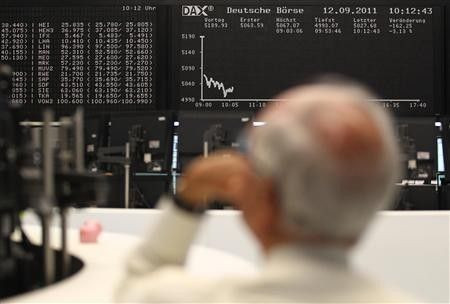Technology Stocks 2011: Mediocre for Year, Great for Selected Winners

Investors didn't get rich owning generalized technology stocks in 2011 but they fared well with some of the traditional winners with good management and proven technology.
Overall, the S&P 500 Index looks as if it will close around 1,255, slightly below where it ended 2010, at 1,259.78. The index is regarded as the best overall benchmark of the U.S. economy.
As a group, sector technology stocks fared poorly in 2011. The Philadelphia Semiconductor Index, which contains big chipmakers like Intel and Texas Instruments, is down about 6.4 percent for the year.
Nasdaq's Technology Index of 100 technology shares is also off about 6.4 percent; the S&P iShares Software Index fell about 7 percent.
Alternatively, the total return on IBM shares is nearly 30 percent, with the stock price up nearly 26 percent since Jan. 3. Shares of Teradata, the enterprise data warehouse specialist are up 18.5 percent while Apple shares have gained about 26 percent, making it the world's most valuable technology company. Qualcomm, the leader in designing chips for mobile phones is up 10 percent. And semiconductor equipment maker KLA-Tencor is up bearly 30 percent.
But these winners could meet barriers in 2012: IBM is getting a new CEO, Virginia Rometty, after 10 years with Samuel Palmisano at the helm. Teradata, in the hot area of big data and analytics, could be a target. And Apple, after 36 years, faces 2012 with a new CEO Tim Cook, 51, who is his own man and not Steve Jobs.
Various mutual funds specializing in technology had a checkered year. T. Rowe Price Science and Technology Fund, a well-regarded mutual fund, fell about 3.5 percent. Another, Fidelity Select Technology, declined more than 9 percent while Goldman Sachs Technology Tollkeeper Fund fell 12.6 percent.
Again, next year could be different and these mutual funds run by knowledgeable managers could have a completely different return.
Some stocks that are remnants of old companies fared well. Motorola Mobility, the smartphone unit of the old Motorola, agreed to be sold to Google for a 62 percent premium. Motorola Solutions, the electronics unit of the former parent, is up 26 percent for 2011. One happy investor in both is Carl Icahn, who started buying into the old parent company in 2007 and helped force the split.
Investors in initial public offerings for technology stocks also had a mixed return. Shares of Chicago-based Groupon have already ceded more than 22 percent since the November IPO. San Francisco-based Zynga is still trading below its $10 pricing of Dec. 15. LinkedIn, the professional social networker, is down 35 percent.
Conversely, security software developer Imperva has gained 37 percent since its November IPO, but it's one of the few technology IPOs that gained, compared with all the losers: RenRen, Pandora Media and Freescale Semiconductor, the former Motorola Semiconductor sector that went private in 2006. Since its IPO, shares have fallen 30 percent.
That could be a warning to some anticipated IPOs including Facebook, Twitter and Tumblr. Maybe instead of testing the stock market, they'll stay private or auction themselves to some of the technology giants which are mainly sitting on mountains of cash.
© Copyright IBTimes 2025. All rights reserved.






















